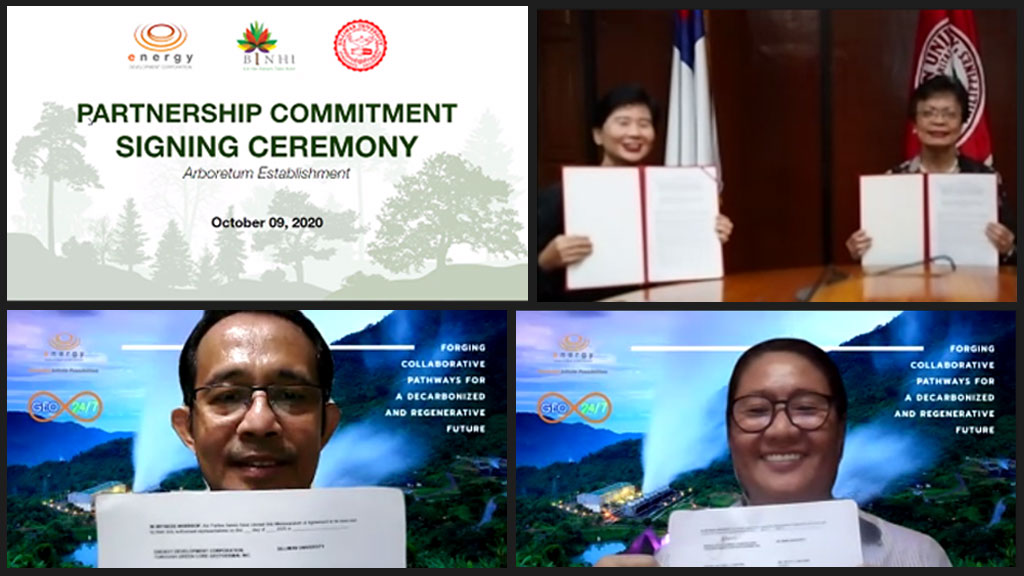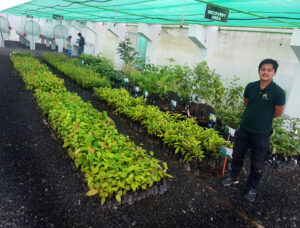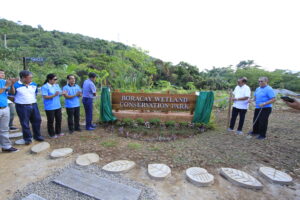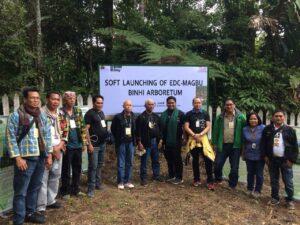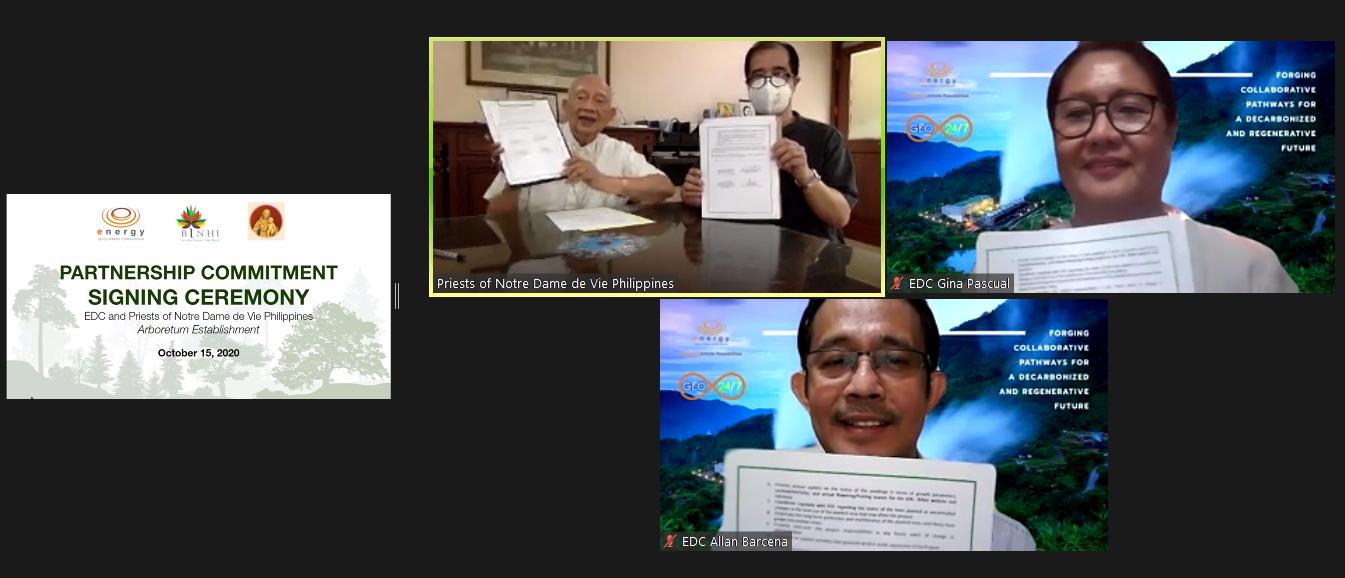Lopez-led geothermal leader Energy Development Corporation (EDC) on October 09 forged another partnership to rescue and secure endangered species in Negros Oriental under its flagship environment program BINHI.
EDC formally inked a partnership with the prestigious Silliman University in a virtual Memorandum of Agreement (MOA) signing ceremony to preserve Philippine threatened tree species by establishing an arboretum inside the Center for Tropical Conservation Studies (CENTROP), Silliman University’s field laboratory grounds in Palinpinon, Valencia, Negros Oriental, to provide a safe haven for the long-term survival of the trees.
An arboretum is like a garden where various tree species are grown and preserved for people to look at and study for scientific purposes. The Silliman-EDC BINHI Arboretum will be a collection of Philippine threatened tree species under the BINHI program to strengthen its niche programs on forest biodiversity,
biotechnology, and conservation biology for instruction, research and extension.
EDC Corporate Social Responsibility Head for Negros Norreen G. Bautista said the partnership will be a great help in achieving BINHI’s goal of conserving biodiversity by securing, rescuing, and propagating endangered and threatened tree species.
“Silliman University has been EDC’s long-time partner for different programs in education, environment, and community development. This new agreement for the Silliman-EDC BINHI Arboretum further strengthens the pact between our company and the university, which both aim to pursue environmental protection and conservation,” Bautista said.
EDC has agreed to provide native tree seedlings from its 96 priority species under BINHI, scientific information, and technical assistance in monitoring and maintaining the tree species to Silliman University, its 179th BINHI partner and 17th arboretum.
“By establishing an arboretum, at our Palinpinon site, Silliman and EDC create a refuge for P[hilippine native trees that are critically endangered or at the brink of extinction due to deforestation. Together we affirm our unified goal to value not just the wildlife around us but even more the forest that nurtures them and humans alike. It is our hope that this arboretum may serve not only as a tree refuge and source of viable seeds for reforestation but also as a venue for student and community learning to enhance our nature conservation and environmental awareness,” said Silliman University President Dr. Betty C. McCann during the virtual MOA signing ceremony.
BINHI is EDC’s nationwide forest restoration program and the country’s largest private sector-led greening initiative that aims to restore denuded forests, preserve and propagate threatened native tree species, and protect biodiversity to leave a legacy of a verdant Philippines for future generations. EDC has also planted nearly 50,000 native and fruit tree seedlings in 2019, bringing to 6.44 million its total number of planted seedlings since BINHI started in 2008.
In Negros alone, 3,394 ha were reforested and 2.6 million seedlings were planted under the BINHI program.
Valencia, Negros Oriental has been home to EDC’s 222.5-megawatt (MW) geothermal facility, the company’s second-biggest facility and a model for compact development and greening, for almost 40 years. The facility has been supplying clean, renewable and uninterrupted geothermal energy to Negros Island and the rest of the Visayas region amid the COVID-19 pandemic.


